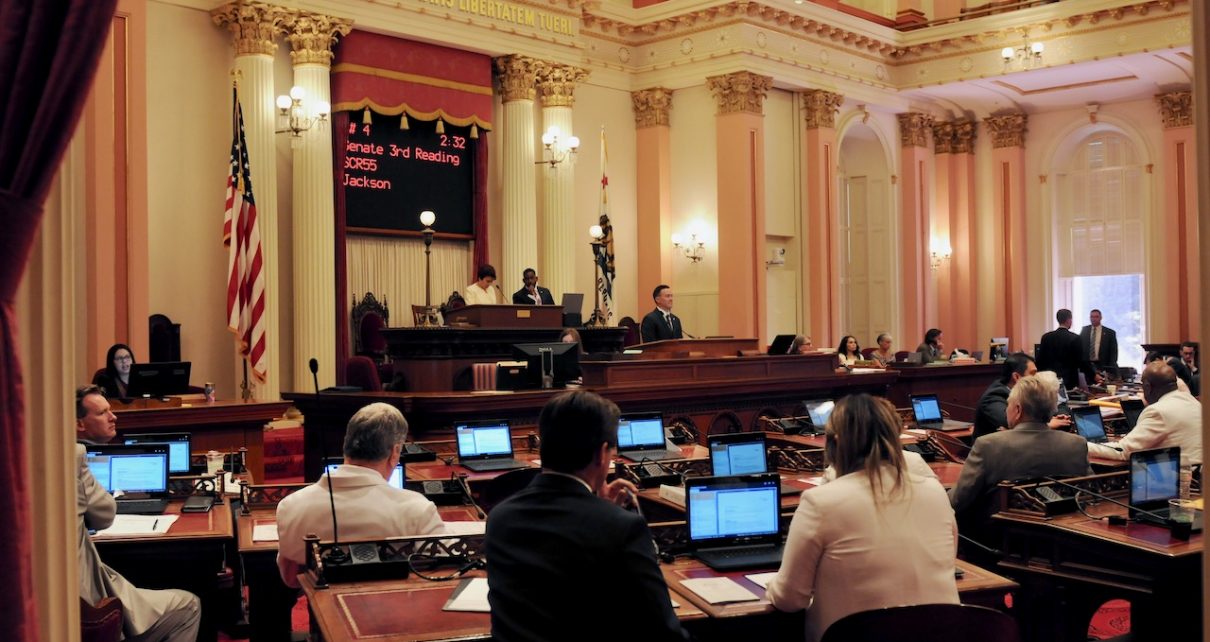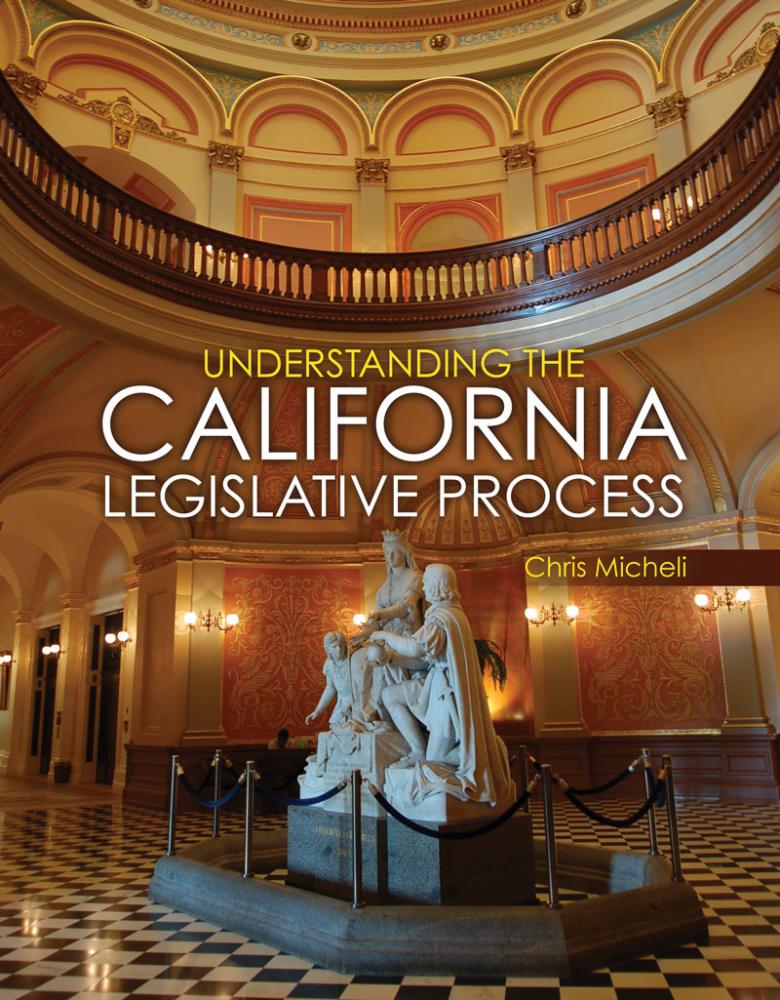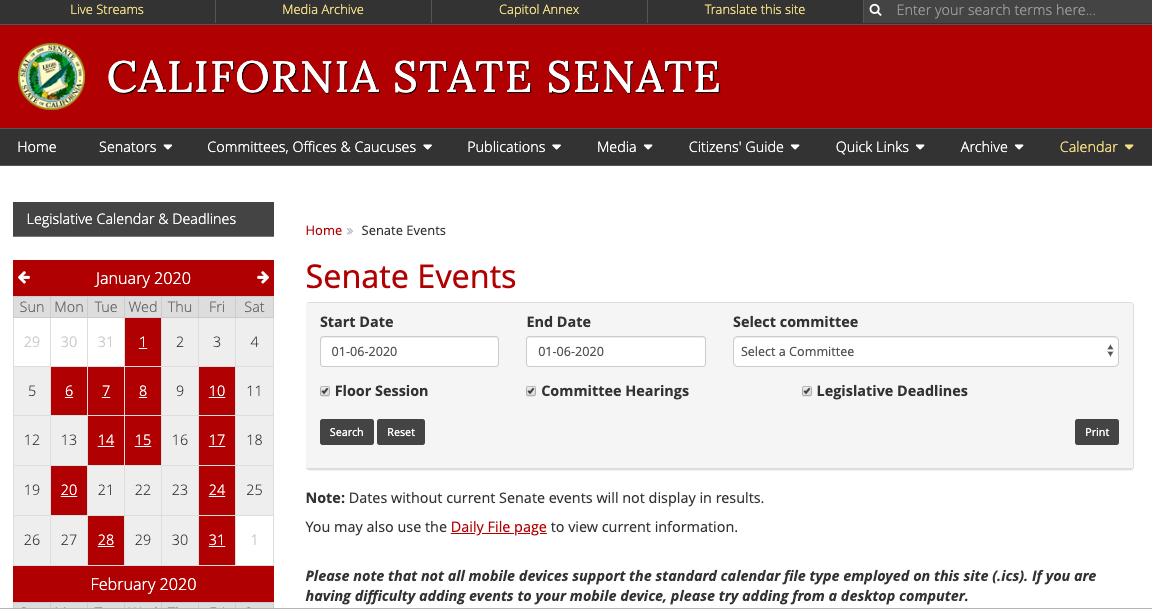
California State Senate. (Photo: Kevin Sanders for California Globe)
Obstacles Faced in the Legislative Process
Each controversial bill can create its own unique set of obstacles
By Chris Micheli, November 4, 2019 2:16 am
As one might contemplate, there are numerous obstacles to overcome during the legislative process in California. These are generally categorized as policy, fiscal and political obstacles that may have to be addressed as a bill travels through the legislative process. In preparation for introducing a bill, this article poses a few questions that a person may want to ask before proceeding with a bill in the California Legislature.
Legislators’ Concerns
When presenting a bill proposal to a legislator as potential author of a bill, generally legislators care about the following key issues:
- What does the bill do and what are the policy arguments for and against the bill?
- What is the fiscal impact, if any, of the bill?
- Who will support the bill?
- Who will oppose the bill?
- How does the bill impact their district?
- How will the Governor view the bill?
- What are the political implications, if any, of the bill?
Assuming a legislator agrees to author the bill, the sponsor or principle supporter(s) of the legislation will need to prepare to address the potential obstacles that the bill will encounter. The following obstacles are reviewed by posing questions that will help guide your resolution of them.
Policy Obstacles
Naturally, there should be a good policy rationale for the legislation. Unfortunately, the Legislature generally examines a proposed solution, rather than examine the policy problem that is attempted to being addressed and then determining what the best solution to that problem actually is. At this early point, the bill’s proponents need to address these questions:
- In presenting the bill (which contains a solution), has the policy problem been clearly explained?
- Is this bill the best solution to the stated policy problem?
- Are there other viable solutions to address the problem?
- What are the potential policy problem(s) with the other solution(s)?
- Is there sufficient policy justification to make the proposed change in law?
- Is there evidence that the alleged shortcoming in existing law exists?
Fiscal Obstacles
Assuming the policy implications of the bill are addressed, the fiscal impact is duly considered by the respective Appropriations Committees (i.e., the fiscal committees in the California Legislature). Note that even some policy committees consider the fiscal impact of proposed legislation, such as the Health, Education, and Revenue & Taxation Committees. In fact, the Assembly Revenue & Taxation Committee, for example, has its own “suspense file” similar to that of the Appropriations Committee that is used to hold bills with a fiscal impact until a later date at which point all of the bills can be voted upon.
The fiscal considerations always come into play if a bill meets the threshold to be placed on the “Suspense File” of either the Assembly or Senate Appropriations Committee, particularly in times when the State is facing financial difficulties. And the view of the Governor, certainly during the Brown Administration, on the fiscal impact of legislation is crucial. As such, the following are some of the questions to address:
- Is there any fiscal impact due to the proposed law change?
- If so, how significant is the impact?
- If there is a fiscal impact, is it to state government, local government and/or the private sector?
- If the fiscal impact is significant, is there a funding source or mechanism to “pay” for the cost of the bill?
- Will the Department of Finance support, oppose or be neutral on the proposal based upon the fiscal impact?
Political Obstacles
Certain entrenched special interests are sometimes the most difficult hurdle to overcome in the legislative process, even if the author and sponsor have resolved the policy and fiscal concerns of the legislation. That is because those who are in a powerful position generally do not want to do anything that does not advance their own interests or that may weaken their position. Some of the questions to pose here include:
- Which group(s) are likely to support the bill? How can they impact the proposed law change?
- Which group(s) are likely to oppose the bill? How can they impact the proposed law change?
- Does a change in law result in hurting one group and/or helping another group?
- Is there grassroots support for either side of the proposal? If so, how significant would that support or opposition be for the bill?
- How has the media portrayed the proposal, if at all?
- Is the majority party in support or opposition to the proposal?
- How does legislative staff view the proposal?
- What is the Administration’s view of the law change?
- Does the proposed bill impact one or more state agencies? If so, will the agency support, oppose or be neutral on the proposal?
- Are there possible amendments to the bill to alleviate some or all of the policy and/or fiscal concerns with the proposal?
- Does the proposed bill impact one legislative district, a geographic region, or the entire state?
Other Obstacles
In a few instances, vote requirements may become an obstacle if the bill requires a super majority vote for passage. For example, does the bill contain an urgency clause? Or does the bill result in anyone paying a higher level of taxes? These bills will require a 2/3 majority vote for passage on both floors of the Legislature. Or does the bill trigger an even higher vote threshold because it amends a particular initiative statute (such as Prop. 99 and its 4/5 majority vote requirement)?
As one would expect, each controversial bill can create its own unique set of obstacles that will need to be addressed. That is why there is not a clear set of rules that apply in the same way for all pieces of legislation. It is a rare year in the legislative process that one does not learn a new tactic or some method to improve a bill’s chances of success the following year.
- Insignia of Nonprofit Associations - February 19, 2026
- Endangered Species Regulation - February 19, 2026
- Renewal of Judgments - February 18, 2026




